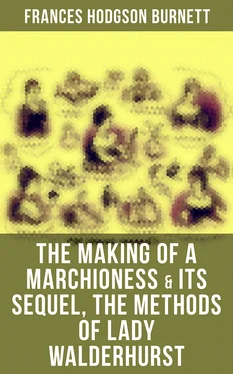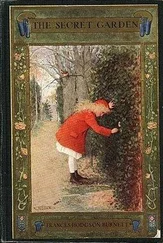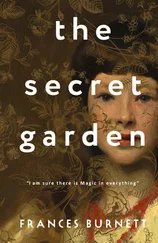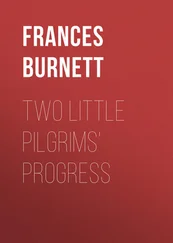Emily Fox-Seton had gone to her first to write notes for an hour every evening. She had sent, declined, and accepted invitations, and put off charities and dull people. She wrote a fine, dashing hand, and had a matter-of-fact intelligence and knowledge of things. Lady Maria began to depend on her and to find that she could be sent on errands and depended on to do a number of things. Consequently, she was often at South Audley Street, and once, when Lady Maria was suddenly taken ill and was horribly frightened about herself, Emily was such a comfort to her that she kept her for three weeks.
“The creature is so cheerful and perfectly free from vice that she’s a relief,” her ladyship said to her nephew afterward. “So many women are affected cats. She’ll go out and buy you a box of pills or a porous plaster, but at the same time she has a kind of simplicity and freedom from spites and envies which might be the natural thing for a princess.”
So it happened that occasionally Emily put on her best dress and most carefully built hat and went to South Audley Street to tea. (Sometimes she had previously gone in buses to some remote place in the City to buy a special tea of which there had been rumours.) She met some very smart people and rarely any stupid ones, Lady Maria being incased in a perfect, frank armour of good-humoured selfishness, which would have been capable of burning dulness at the stake.
“I won’t have dull people,” she used to say. “I’m dull myself.”
When Emily Fox-Seton went to her on the morning in which this story opens, she found her consulting her visiting-book and making lists.
“I’m arranging my parties for Mallowe,” she said rather crossly. “How tiresome it is! The people one wants at the same time are always nailed to the opposite ends of the earth. And then things are found out about people, and one can’t have them till it’s blown over. Those ridiculous Dexters! They were the nicest possible pair—both of them good-looking and both of them ready to flirt with anybody. But there was too much flirting, I suppose. Good heavens! if I couldn’t have a scandal and keep it quiet, I wouldn’t have a scandal at all. Come and help me, Emily.”
Emily sat down beside her.
“You see, it is my early August party,” said her ladyship, rubbing her delicate little old nose with her pencil, “and Walderhurst is coming to me. It always amuses me to have Walderhurst. The moment a man like that comes into a room the women begin to frisk about and swim and languish, except those who try to get up interesting conversations they think likely to attract his attention. They all think it is possible that he may marry them. If he were a Mormon he might have marchionesses of Walderhurst of all shapes and sizes.”
“I suppose,” said Emily, “that he was very much in love with his first wife and will never marry again.”
“He wasn’t in love with her any more than he was in love with his housemaid. He knew he must marry, and thought it very annoying. As the child died, I believe he thinks it his duty to marry again. But he hates it. He’s rather dull, and he can’t bear women fussing about and wanting to be made love to.”
They went over the visiting-book and discussed people and dates seriously. The list was made and the notes written before Emily left the house. It was not until she had got up and was buttoning her coat that Lady Maria bestowed her boon.
“Emily,” she said, “I am going to ask you to Mallowe on the 2d. I want you to help me to take care of people and keep them from boring me and one another, though I don’t mind their boring one another half so much as I mind their boring me. I want to be able to go off and take my nap at any hour I choose. I will not entertain people. What you can do is to lead them off to gather things of look at church towers. I hope you’ll come.”
Emily Fox-Seton’s face flushed rosily, and her eyes opened and sparkled.
“O Lady Maria, you are kind!” she said. “You know how I should enjoy it. I have heard so much of Mallowe. Every one says it is so beautiful and that there are no such gardens in England.”
“They are good gardens. My husband was rather mad about roses. The best train for you to take is the 2:30 from Paddington. That will bring you to the Court just in time for tea on the lawn.”
Emily could have kissed Lady Maria if they had been on the terms which lead people to make demonstrations of affection. But she would have been quite as likely to kiss the butler when he bent over her at dinner and murmured in dignified confidence, “Port or sherry, miss?” Bibsworth would have been no more astonished than Lady Maria would, and Bibsworth certainly would have expired of disgust and horror.
She was so happy when she hailed the twopenny bus that when she got into it her face was beaming with the delight which adds freshness and good looks to any woman. To think that such good luck had come to her! To think of leaving her hot little room behind her and going as a guest to one of the most beautiful old houses in England! How delightful it would be to live for a while quite naturally the life the fortunate people lived year after year—to be a part of the beautiful order and picturesqueness and dignity of it! To sleep in a lovely bedroom, to be called in the morning by a perfect housemaid, to have one’s early tea served in a delicate cup, and to listen as one drank it to the birds singing in the trees in the park! She had an ingenuous appreciation of the simplest material joys, and the fact that she would wear her nicest clothes every day, and dress for dinner every evening, was a delightful thing to reflect upon. She got so much more out of life than most people, though she was not aware of it.
She opened the front door of the house in Mortimer Street with her latchkey, and went upstairs, almost unconscious that the damp heat was dreadful. She met Jane Cupp coming down, and smiled at her happily.
“Jane,” she said, “if you are not busy, I should like to have a little talk with you. Will you come into my room?”
“Yes, miss,” Jane replied, with her usual respectful lady’s maid’s air. It was in truth Jane’s highest ambition to become some day maid to a great lady, and she privately felt that her association with Miss Fox-Seton was the best possible training. She used to ask to be allowed to dress her when she went out, and had felt it a privilege to be permitted to “do” her hair.
She helped Emily to remove her walking dress, and neatly folded away her gloves and veil. She knelt down before her as soon as she saw her seat herself to take off her muddy boots.
“Oh, thank you, Jane,” Emily exclaimed, with her kind italicised manner. “That is good of you. I am tired, really. But such a nice thing has happened. I have had such a delightful invitation for the first week in August.”
“I’m sure you’ll enjoy it, miss,” said Jane. “It’s so hot in August.”
“Lady Maria Bayne has been kind enough to invite me to Mallowe Court,” explained Emily, smiling down at the cheap slipper Jane was putting on her large, well-shaped foot. She was built on a large scale, and her foot was of no Cinderella-like proportions.
“O miss!” exclaimed Jane. “How beautiful! I was reading about Mallowe in ‘Modern Society’ the other day, and it said it was lovely and her ladyship’s parties were wonderful for smartness. The paragraph was about the Marquis of Walderhurst.”
“He is Lady Maria’s cousin,” said Emily, “and he will be there when I am.”
She was a friendly creature, and lived a life so really isolated from any ordinary companionship that her simple little talks with Jane and Mrs. Cupp were a pleasure to her. The Cupps were neither gossiping nor intrusive, and she felt as if they were her friends. Once when she had been ill for a week she remembered suddenly realising that she had no intimates at all, and that if she died Mrs. Cupp’s and Jane’s would certainly be the last faces—and the only ones—she would see. She had cried a little the night she thought of it, but then, as she told herself, she was feverish and weak, and it made her morbid.
Читать дальше












